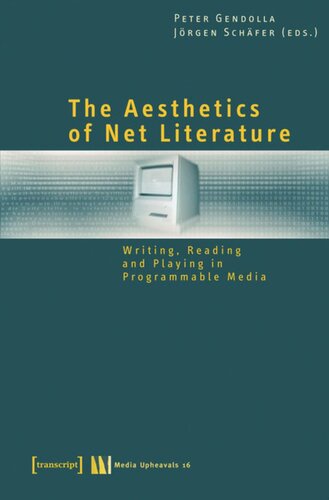

Most ebook files are in PDF format, so you can easily read them using various software such as Foxit Reader or directly on the Google Chrome browser.
Some ebook files are released by publishers in other formats such as .awz, .mobi, .epub, .fb2, etc. You may need to install specific software to read these formats on mobile/PC, such as Calibre.
Please read the tutorial at this link: https://ebookbell.com/faq
We offer FREE conversion to the popular formats you request; however, this may take some time. Therefore, right after payment, please email us, and we will try to provide the service as quickly as possible.
For some exceptional file formats or broken links (if any), please refrain from opening any disputes. Instead, email us first, and we will try to assist within a maximum of 6 hours.
EbookBell Team

0.0
0 reviewsDuring recent years, literary texts in electronic and networked media have been a focal point of literary scholarship, using varying terminology. In this book, the contributions of internationally renowned scholars and authors from Germany, USA, France, Finland, Spain and Switzerland review the ruptures and upheavals of literary communication within this context. The articles in the book focus on questions such as: In which literary projects can we discover a new quality of literariness? What are the terminological and methodological means to examine these literatures? How can we productively link the logics of the play of literary texts and their reception in the reading process? What is the relationship of literary writing and programming?
With contributions by Jean-Pierre Balpe, Susanne Berkenheger, Friedrich W. Block, Philippe Bootz, Laura Borràs Castanyer, Markku Eskelinen, Frank Furtwängler, Peter Gendolla, Loss Pequeño Glazier, Fotis Jannidis, Thomas Kamphusmann, Mela Kocher, Marie-Laure Ryan, Jörgen Schäfer, Roberto Simanowski and Noah Wardrip-Fruin.